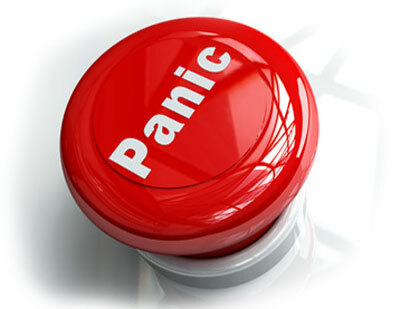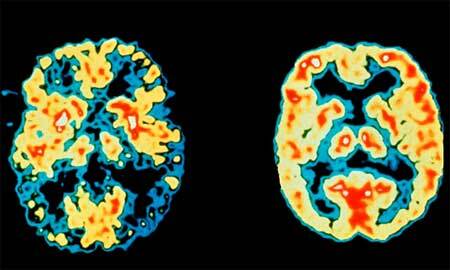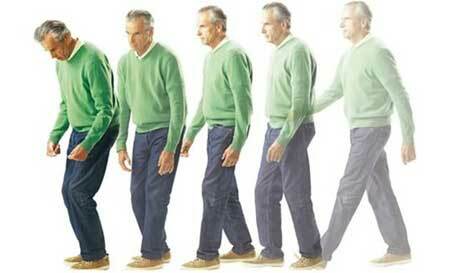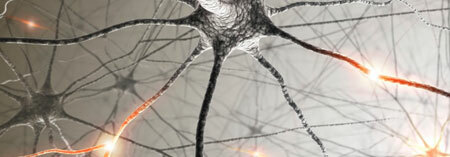Panic attacks suffer from 6-8% of the population, with the overwhelming majority of patients( 75%) being women. This disease does not apply only to psychological problems, anxiety attacks and unexplained fear are accompanied by somatic symptoms expressed in varying degrees.
Therefore, the best treatment for panic attacks includes drug therapy, psychotherapeutic techniques and, of course, the patient's efforts and his desire to overcome the ailment.
Contents
- 1 Panic attacks, what is it?
- 1.1 Causes of Panic Attacks
- 2 Symptoms of Panic Attack
- 3 Symptoms of Panic Attack
- 4 What to do in a panic attack?
- 5 How to deal with panic attacks on your own?
- 6 Who should I contact for help?
- 7 Treatment: how to get rid of panic attacks?
Panic attacks, what is it?

Panic attack is a neurosis of a special kind, when there is not only a mental deviation, but also symptoms from the vegetative system.
Panic attacks - a severe anxiety and painful sense of fear, accompanied by painful symptoms on the part of the heart, abdominal organs or respiratory system, that do not have a valid reason. Panic attack "brings to light" and hypertrophies, distorts hidden fears.
Panic attacks occur spontaneously, their frequency varies from several times a day to 1-2 times a month. Often, an alarming state is provoked by "threatening" situations: being in a confined space, a crowded place, the need to go out on the street or a trip on transport.
An inadequate psychological reaction provokes the release of adrenaline as a protective reaction, and the "adrenaline explosion" leads to the emergence of various vegetative symptoms, which further aggravate fear."Suddenly, I had a heart attack?", "I have a very serious illness?" - such thoughts arise during a panic attack.
A person begins to visit doctors, but most often organic pathology is not found. Then the patient either begins to blame doctors for incompetence, or remains in firm confidence about the exclusivity and incurability of his illness.
The fear of a re-attack of fear forms a reflex connection between painful symptoms and circumstances-provocateurs. Repeated adrenaline emissions in the same external situation( a trip in the subway or elevator, etc.) forces the patient to avoid certain places. The fear of a second panic attack is called agoraphobia.
Causes of Panic Attacks
The reasons provoking panic attack include:
- hereditary predisposition - unstable psyche and propensity for panic among close relatives;
- significant life events( not necessarily negative!) - graduation from the university, birth of a child, divorce, death of a loved one, dismissal from work;
- instability of the situation - violent political events in the country, terrorist attacks;
- organic pathology - mainly heart disease, including heart valve defects;
- endocrine disorders - hyperthyroidism, low blood glucose;
- stimulating action - caffeine, drug addiction( cocaine, amphetamine);
- side effects of certain drugs;
- alcohol abuse;
- prolonged depression, emotional fatigue;
- neurosis of the heart - often accompanied by panic attacks, but organic changes in the myocardium and valves are not detected.
Symptoms of panic attack
A newly developed panic attack usually lasts 5-10 minutes. In this case, vegetative vascular dystonia( VSD) comes to the forefront of a panic attack. A person often calls an ambulance, being sure that his heart is hurting, a serious stomach disease or other somatic pathology has appeared.
At the same time, the emotional state is usually treated by the patient not as a cause, but as a consequence of the disease.
Do not worry, if only 1-2 cases of panic happened. Often, inexplicable fear and anxiety end there without any complications.
However, in hypochondriac, overly emotional people, "adrenaline explosions" are repeated with an enviable regularity. In this case, it is already worth considering panic disorder.
Symptoms of panic attack

Symptomatic picture of panic attack is quite diverse. Against the background of the necessarily present expressed anxiety / fear, there arises a vegetative symptomatology.
Symptoms of panic attack:
- expression of anxiety - fear of loss of consciousness or death, unreasonable panic, unpleasant feeling in the chest, muscle tension, insomnia and confusion of thoughts;
- vegetative - sweating and cold palms, chills and trembling, increased pressure, lump in the throat and a feeling of lack of air, palpitations, nausea and diarrhea;
- neurologic - staggering gait, dizziness, unpleasant numbness or tingling in the body, a sense of unreality of the environment.
Manifestations of panic attack can vary significantly in one person, and the severity of symptoms also varies. Often, seizures, previously recurring 2-4 times a week, suddenly disappear and appear again after a long time.
What should I do if I panic?
The following techniques will help to quickly stop the panic attack:
- Diaphragmatic breathing - slowing of breathing to 4-5 breaths per minute: deep inhalation, pause in 1-2 sec.and a slow exhalation.
- Physical training - muscle loads consume energy and take it away from a panic attack, and synthesized endorphins significantly improve mood and overall well-being.
- Force yourself to experience the full "power" of a panic attack and still not lose confidence that the state is completely safe. This technique once and for all will get rid of the fears that fuel panic attacks.
It's possible that on the first try your efforts will not be successful, but the regular practice of one of the above methods will eventually result in a result, panic attacks will be as short as possible, and their symptoms are the least pronounced.
How to deal with panic attacks on your own?

The most important thing a patient needs to know:
- A panic attack is a temporary phenomenon, one way or another it will disappear.
- The cause of panic disorder is not a severe / fatal organic pathology, but panic attacks do not lead to death.
- A trip to the metro, exit to the street and other situations provoking a pronounced fear do not threaten health. Do not be afraid of repeated panic attacks and avoid "threatening" circumstances.
- Panic attack is not schizophrenia or insanity. It's just a neurosis with symptoms manifesting on the physical level.
- The arising fear has no valid reason. It is an illusion, like the presumption of a drunken man to swim across the ocean, to enchant any woman.
- Your emotional hypersensitivity is not a cause for such stormy manifestations at traumatic moments.
If the patient grasps these facts, panic attacks may disappear even without the intervention of a qualified physician.
Avoiding "adrenaline explosions" is facilitated by:
- Picking yourself up is the most important rule in a panic attack. This can be facilitated by meditation.
- Do sports, any physical activity with adequate loads.
- Healthy lifestyle - fighting bad habits, compliance with sleep, hardening( contrast shower), daily walks.
- Intellectual activity - reading books( less to sit at the computer!).
Who should I contact for help?
Often, a person who first experiences panic fear, turns to the therapist. The lack of diagnostic data on organic pathology makes the doctor pay attention to the psychological side. Usually the patient receives a referral to a psychotherapist or psychologist.
This should not be feared: Psychotherapists treat not only schizophrenia, they have at their disposal a number of techniques that affect less serious psychological abnormalities, including panic attacks.
Treatment: how to get rid of panic attacks?

Complex treatment of panic disorder includes:
Medication therapy - antidepressants( effective several weeks later) and benzodiazepines( addictive).Doses and duration of reception are determined individually. Overdose is fraught with serious consequences, alone is strictly forbidden!
Psychotherapeutic treatment - hypnosis, suggestion techniques, cognitive-behavioral therapy for the formation of a normal direction of thinking.
Do not rely solely on medicines. Medicines only temporarily reduce psychological tension. Only in combination with psychological methods, desire and the efforts of the person himself, panic attacks can be defeated.



